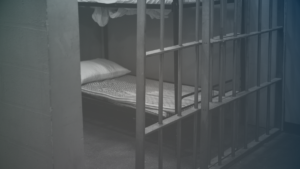In an effort to celebrate Black History Month, NC Voices is highlighting prominent Black leaders from North Carolina, who have shaped our state through their contributions to arts, sciences, politics, etc.
Ella Baker, known as the “Mother of the Civil Rights Movement”, inspired and guided several leaders, including W. E. B. Du Bois, Thurgood Marshall, and Martin Luther King Jr., during the early formation of the civil rights movement.
Baker, who studied at Shaw University in Raleigh, North Carolina, played a key role in some of the most influential organizations of the time, including the NAACP, Martin Luther King’s Southern Christian Leadership Conference (SCLC), and the Student Nonviolent Coordinating Committee (SNCC).
From the Ella Baker Center for Human Rights:
Ella Baker began her involvement with the NAACP in 1940. She worked as a field secretary and then served as director of branches from 1943 until 1946.
Inspired by the historic bus boycott in Montgomery, Alabama, in 1955, Baker co-founded the organization In Friendship to raise money to fight against Jim Crow Laws in the deep South.
In 1957, Baker moved to Atlanta to help organize Martin Luther King’s new organization, the Southern Christian Leadership Conference (SCLC). She also ran a voter registration campaign called the Crusade for Citizenship.
From SNCC Digital Gateway:
Because of her work as NAACP Director of Branches in the 1940s, Baker had a network that she was able to put at the new organization’s disposal. For example, in the summer of 1960 she sent Bob Moses to meet local NAACP leader Amzie Moore in Cleveland, Mississippi, and out of this meeting emerged SNCC’s first voter registration project.
Her belief was always that organizing people meant that they could lead themselves. After all, who else was better qualified to articulate their needs? She often said, “strong people don’t need strong leaders;” but facilitating this required extensive travel, conversation, and meetings. Baker was well-known for her indefatigable spirit.
On the heels of desegregation sit-ins started by the Greensboro Four, Baker left the SCLC after the Greensboro sit-ins, to assist emerging student activists and helped organize the founding of the SNCC at Shaw University in 1960.
With Baker’s guidance, the SNCC initiated voter registration programs across the deep south. At its height, SNCC had more field organizers in the South than any other civil rights organization.
Baker would help out in coordinating the region-wide Freedom Rides of 1961, and continued to be a respected and influential leader in the fight for human and civil rights until her death on December 13, 1986.
Ella Baker is remembered for her desire to build power in Black, Brown and poor people in an effort to create solutions, build strength and shape the future within those communities.
Baker was also an advocate for student activists, as she recognized that “the young people were the hope of any movement…They were the people who kept the spirit going”.




